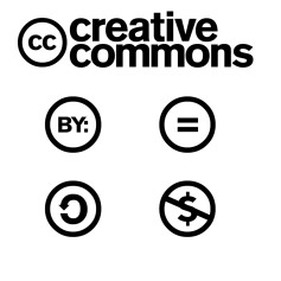
Many of you know I’m a former Social Studies teacher so I like to tell stories. Well, today’s post is full of stories about how to get kids to ask for the lessons they usually despise.
Story 1:
Once, during a summer camp I was hosting, I had a group of kids rush into a room and take all the donuts before even 3/4 of the group had a chance to even know there were donuts. I saw it was happening and, contrary to all my teacher-training about fair play, I let them do it.
Once the donuts were eaten and we were back in our workspace (another room), I asked if everyone liked the donuts … and I was shocked when I “found out” that not all kids got donuts. What?!
I quickly feigned gentle empathy for those who’d grabbed more than their share, saying, “I’m so sorry that no one told you to consider other people in a group.” I was sure to never point to anyone during the quick lesson…the kids already knew who’d had 4-5 donuts. I was careful to take on an honest, understanding, and confidant-type of demeanor, asking kids to not let themselves be “that guy.”
“It’s ok; mistakes happen. We just won’t be ‘that guy’ again, right?”
It was a gentle teachable moment where we began to move away from the school-flavored imposed stick-and-carrot external motivators to more of an intrinsic motivation to do the right thing. Kids were asked to consider the needs and desires of everyone before helping ourselves to our own selfish needs first. After that 3-5 minute intentional interaction, the group had plenty of all snacks throughout the rest of the week, with extras left over for the adults too!
You see, I knew that if I’d hollered at them to SHARE (which I’m assuming they’d heard at high volume many times before–after all, they were middle schoolers) my words would have forced their compliance, but would have had no overall change to want to always do the right thing. By letting the kids make the mistake and then intentionally asking them consider how it affected others, all the while staying gentle and supportive of the community and future behavior, we were able to actually affect true behavioral change.
So how do we intentionally create or at least capitalize on other situations that relate to behavior?
What about teachable moments that relate to academic learning? Because that’s a huge part of creating a truly democratic form of schooling.
Story 2:
I like to let kids work hard creating something where they have broken copyright like they were stealing the Hope Diamond! They are working hard, doing their research, trying their best, but no where do I talk to them about copyright. Some might know better. Some might not. It’s ok. It’s a mistake.
Once they’re finished with the work, there are huge congratulations all around. The kids have worked their butts off and we’re all proud.
Then I ask them about their bibliographies.
<<pin drop>>
<<crickets chirping>>
I feign an Oscar-worthy combo of fear and nervousness. Where did they get that awesome picture? That map? That information? We MUST have the bibliographies or we’re gonna get in huge trouble (because we’ve published the work). It’s something like a $10,000 fine for each violation, I lie to them.
They start to panic.
I tell them we have to delete the work and start all over again.
Some start to truly freak out.
In a soothing voice, I immediately calm them and say that we’ll leave it this time, but only if they promise to learn about copyright, copyleft, creative commons, and fair use for next time.
They all eagerly agree.
;)
I win.
You think they would have been as eager to learn all about that stuff before the teachable moment? Of course not.
Yes, we can create opportunities for teachable moments everywhere. I want kids to ask me for the information and lessons they usually dodge. How do I create an opportunity for them to need to know about fractions? About how to use proper grammar?
Because when they ask for those lessons, you win. And so do they.
Story 1:
Once, during a summer camp I was hosting, I had a group of kids rush into a room and take all the donuts before even 3/4 of the group had a chance to even know there were donuts. I saw it was happening and, contrary to all my teacher-training about fair play, I let them do it.
Once the donuts were eaten and we were back in our workspace (another room), I asked if everyone liked the donuts … and I was shocked when I “found out” that not all kids got donuts. What?!
I quickly feigned gentle empathy for those who’d grabbed more than their share, saying, “I’m so sorry that no one told you to consider other people in a group.” I was sure to never point to anyone during the quick lesson…the kids already knew who’d had 4-5 donuts. I was careful to take on an honest, understanding, and confidant-type of demeanor, asking kids to not let themselves be “that guy.”
“It’s ok; mistakes happen. We just won’t be ‘that guy’ again, right?”
It was a gentle teachable moment where we began to move away from the school-flavored imposed stick-and-carrot external motivators to more of an intrinsic motivation to do the right thing. Kids were asked to consider the needs and desires of everyone before helping ourselves to our own selfish needs first. After that 3-5 minute intentional interaction, the group had plenty of all snacks throughout the rest of the week, with extras left over for the adults too!
You see, I knew that if I’d hollered at them to SHARE (which I’m assuming they’d heard at high volume many times before–after all, they were middle schoolers) my words would have forced their compliance, but would have had no overall change to want to always do the right thing. By letting the kids make the mistake and then intentionally asking them consider how it affected others, all the while staying gentle and supportive of the community and future behavior, we were able to actually affect true behavioral change.
So how do we intentionally create or at least capitalize on other situations that relate to behavior?
What about teachable moments that relate to academic learning? Because that’s a huge part of creating a truly democratic form of schooling.
Story 2:
I like to let kids work hard creating something where they have broken copyright like they were stealing the Hope Diamond! They are working hard, doing their research, trying their best, but no where do I talk to them about copyright. Some might know better. Some might not. It’s ok. It’s a mistake.
Once they’re finished with the work, there are huge congratulations all around. The kids have worked their butts off and we’re all proud.
Then I ask them about their bibliographies.
<<pin drop>>
<<crickets chirping>>
I feign an Oscar-worthy combo of fear and nervousness. Where did they get that awesome picture? That map? That information? We MUST have the bibliographies or we’re gonna get in huge trouble (because we’ve published the work). It’s something like a $10,000 fine for each violation, I lie to them.
They start to panic.
I tell them we have to delete the work and start all over again.
Some start to truly freak out.
In a soothing voice, I immediately calm them and say that we’ll leave it this time, but only if they promise to learn about copyright, copyleft, creative commons, and fair use for next time.
They all eagerly agree.
;)
I win.
You think they would have been as eager to learn all about that stuff before the teachable moment? Of course not.
Yes, we can create opportunities for teachable moments everywhere. I want kids to ask me for the information and lessons they usually dodge. How do I create an opportunity for them to need to know about fractions? About how to use proper grammar?
Because when they ask for those lessons, you win. And so do they.


 RSS Feed
RSS Feed
